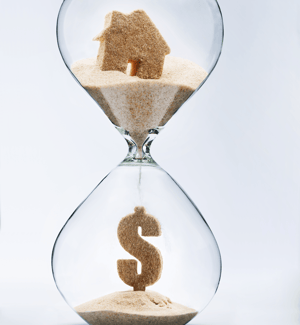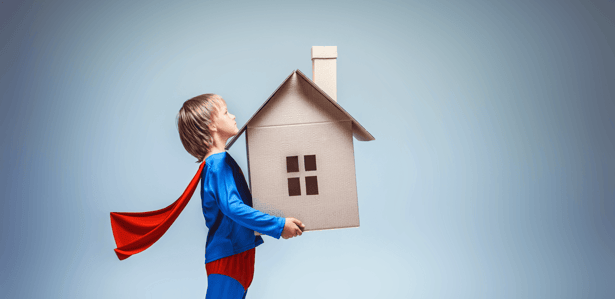In a nutshell, your equity is the amount of your home that you “own.” For instance, if you have $250,000 left to pay on your mortgage, and the value of the home is $350,000, you have $100,000 equity.
When you make your monthly mortgage payment, you increase your equity little by little. However, in the early years of home ownership, a large portion of the monthly payment is going towards interest on the loan. Let's say you take out a 25-year mortgage on a $350,000 home, with a 20% down payment (meaning you've borrowed $280,000.) Your interest rate is 4.5% so your monthly payments will be about $1,550 each month. At the end of your first year, though, you’ll have only put around $6,240 toward the principal balance.
You can put more money toward the principal balance, but not everyone is convinced it’s the right thing to do. Once you understand the benefits of building equity, though, you might consider paying more than the minimum balance.
 Playing around with numbers in a mortgage payment calculator can help you decide what will work best for you.
Playing around with numbers in a mortgage payment calculator can help you decide what will work best for you.
Using Equity for Your Next Down Payment
You probably remember how difficult it was to come up with the down payment on your first home. You may have even needed to borrow money from your RRSP to meet the requirements. The great news is you don’t usually have to worry about this when it’s time to buy the next home. The money you’ve paid on your mortgage over the years builds up. If the value of your home increases, you’re in an even better position. When you pay more toward the principal, you increase the amount of money you’ll have for your next down payment.
Paying Off Your Mortgage Earlier
Adding extra money to your mortgage payment allows you to pay off your mortgage far earlier than the original payoff date. Using the previous example with a 25-year $280,000 mortgage at 4.5 percent interest, adding just $250 to each monthly payment would allow you to pay off the mortgage almost six years earlier than making minimum payments alone.
Paying Less Interest Overall
The interest you pay is based on the principal balance, so if you decrease it faster, you pay far less interest over the term of the loan. That $280,000 mortgage initially comes with a total of around $184,918 extra in interest payments over 25 years. When you increase your payments by $250, you not only finish paying the loan sooner, you end up only paying around $138,730 in total interest over the term of the loan.
Getting Money When You Need It
The money you put toward your home’s equity isn’t necessarily tied up until you’re ready to sell your home. With a home equity loan or line of credit, you’re able to borrow money against the equity of your home to be used for almost anything you need.
Policies about this vary from bank to bank, but usually, you can borrow up to 10 or 20 percent of the total value of your home. If you have $100,000 equity in a home worth $350,000, you could likely borrow between $35,000 and $70,000. These loans typically come with low-interest rates, so they’re an attractive solution for those who need quick cash for home improvements.
 Weathering Financial Ups and Downs
Weathering Financial Ups and Downs
You never know where life will lead, but if you’ve been paying extra money toward your mortgage, you may have an easier time making ends meet if you lose your job. If you’re used to paying an extra $250 each month, you can easily drop back down to the minimum payment to make things more affordable. Refinancing the mortgage can also bring you significant monthly savings, and the increased equity will mean the payments are even lower. Talk with your bank if you ever have difficulties making your mortgage payments.
How to Increase Your Equity
You have a few different options if you want to increase your equity. Those who get paid every other week often like to set up a payment system where they’re paying half of the mortgage every other week. Instead of 12 full payments, this results in 26 half-payments. That’s an extra full mortgage payment each year that goes toward the principal, helping you to pay your mortgage off faster.
Alternatively, when you fill out the bank’s paperwork to set up automatic payments, increase the amount. For instance, if your minimum payment is $1,200, you could tell the bank to withdraw $1,400 (check if your lender allows this).
Others simply write a separate check to the bank whenever they have a bit of extra money. This method works well for those who get a lump-sum bonus or small business owners who have fluctuating income. Again, check with your lender for conditions.
Building up your equity is a smart move if your budget allows it. Ask your mortgage lender about how you can make it happen.




